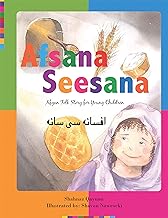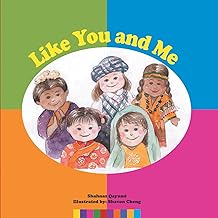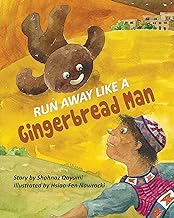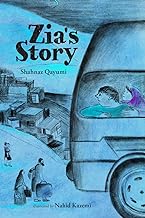Shahnaz Qayumi was born and raised in Kabul, Afghanistan. She fled the country in 1982 during the Soviet Union’s occupation and eventually found refuge in Canada. She now lives in Vancouver and teaches at Langara University. Qayumi has a Master’s Degree in Early Childhood Education and Psychology from the Gorky Pedagogical Institute in Kiev, Ukraine.

Fiction (Juvenile, Folklore)
Afsana Seesana: Afghan Folk Story for Young Children
Illustrated by Shavon Nawrocki.
Xlibris US, 2014.
Publisher’s Synopsis
Afsana Seesana is a very famous Afghan folk nursery rhyme. (In the Dari language, the word “afsana” means story). A rhyme associates words with similar sounds using a rhyming couplet or short verse and is often short and easy to remember. When people weren’t able to read and write, a rhyme was verbally passed from generation to generation. In the past, literature was often written for children to learn the moral values of human relationships. In this context, Afsana Seesana promotes the magic of giving.
In this book, children are encouraged to share their food, with the consequence of giving being divine blessing. In Afghan culture, sharing and giving is culturally and traditionally fostered from a very young age, which makes the sharing skill embedded in the hearts and souls of all Afghans. If you have a little or a lot or you are poor or rich, still you must share. Sharing is not only fostered in respect to food but also spaces, materials, and objects.

Fiction (Juvenile, Picture book)
Like You and Me
Illustrated by Shavon Cheng.
Authorhouse, 2011.
Author’s Synopsis
I will never forget that day. I was nine years old when a lady asked me, “Are you “Pashtun” or “Tajik”? Pashtuns and Tajiks are the predominant ethnic groups in Afghanistan and yet I did not know which group I belonged to so I answered, Afghan!” I was puzzled with this strange question and, not knowing the concept of ethnicity, I rushed home to clarify this issue. I questioned my mother, “Am I Pashtun or Tajik?” My mother demanded that I tell her what my response was to the lady who asked me the question about my ethnicity. Afghan! I repeated my answer to my mother. My mother peered deep into my curious eyes that were waiting for the right answer and responded, “You are absolutely right, you are an Afghan and nothing else”. This was an important lesson because it showed me at an early age that ethnicity does not determine who we are. Underneath all our beautiful diverse attributes we should be equally respected for being human. My book, “Like You and Me”, is a place for children to explore and celebrate the vast diversity in our world. As an early childhood educator and a parent, I believe that we play a significant role in developing a sense of acceptance, appreciation, and love in our children. The earlier children are exposed to diversity in a positive light the more it will help our children admire the beauty in every culture. Children are not born to be prejudiced; I’ve known this since I was nine years old.

Fiction (Juvenile, Picture book)
Run Away Like a Gingerbread Man
Illustrated by Hsiao-Fen Nawrocki.
Tellwell Talent, 2020.
Publisher’s Synopsis
Run Away Like A Gingerbread Man tells the story of five-year-old Rustam, who lives with his mother in war-torn Afghanistan. When conditions at home become dangerous, they are forced to flee, and Rustam’s mother comforts him with her version of the Gingerbread Man fable. The rich fantasy helps Rustam cope with the challenges of their escape. In our multicultural society, it is extremely common for children to have left their original homes, friends, their toys and possessions behind to begin another life somewhere strange and new. Unfortunately, it is often the case that these children were forced to leave their homelands out of necessity, out of fear for their own safety and that of their families. The author was inspired to write this story after escaping from Afghanistan with her then six-year-old son.

Fiction (Juvenile, Chapter book)
Zia’s Story
Illustrated by Nahid Kazemi.
Vancouver: Tradewind Books, 2024.
PS8633.A98 Z23 2024
Publisher’s Synopsis (From its website)
“You are a man now, take care of your mother,” Zia’s father whispered to Zia just as he is arrested—never to return home. Soon after that, in 1989, the Russians pull out of Afghnaistan, and the country falls into civil war. After the Taliban took over, women were not allowed to work, nor could girls go to school. Zia’s Story is based on the author’s own experiences as a young mother having to flee an Afghanistan torn apart by war with her young son.
Links
Publisher Tradewind Books